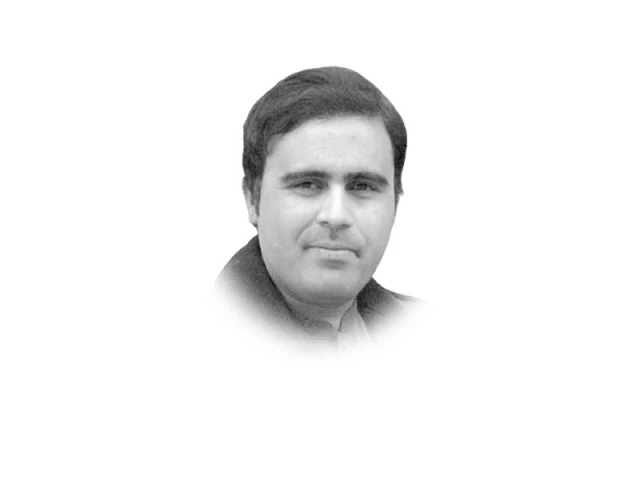Mirror to the rulers
.

Each year, the HRCP's report sparks a familiar ritual: civil society erupts in outrage, the state stays mute and the powerful grow defensive. The 2024 report, however, lays bare a fundamental breakdown in how we govern and treat the public, particularly the most vulnerable. It's a blunt diagnosis of a country steadily unlearning democracy, shedding compassion and settling into repression.
The findings are impossible to miss, unless one is willfully blind. From sweeping protest curbs to laws that equate criticism with defamation to rising judicial meddling, dissent is being actively crushed. The 26th Amendment — rammed through in majoritarian fashion — and laws like the Public Order Act and the Punjab Defamation Act aren't one-offs. They're part of a pattern. The message is clear: citizens are no longer seen as participants, but only as problems to be managed.
Freedom of expression continues to shrink, per the report. The ban on X drags on like an old wound that refuses to heal. Internet blackouts are now routine whenever unrest brews on the streets. Journalists remain in the line of fire — 162 attacks last year alone. And yet, we still hear official lines about 'restoring order' and 'promoting journalism' as if these were neutral moves rather than calculated muzzling.
The rot also extends into the judiciary, an institution meant to curb overreach but itself under strain from both within and without. The HRCP sounds the alarm on a crippling 2.4 million-case backlog and damning claims by judges of meddling and intimidation. The idea of an independent judiciary — something we proudly tout — rings hollow in practice. If judges feel intimidated, what hope is there for the everyday Pakistani seeking justice?
Violence, too, is surging. Not just from terrorist attacks but also from actions that blur the line between policing and raw force, with nearly 5,000 suspects meeting their end in police encounters across Punjab and Sindh. Justice now happens at the barrel of a gun. Bursting at the seams with lawlessness and impunity, Karachi records over 47,000 crimes while prisons across the country overflow at more than twice their capacity. These are signs of a society fraying and a system buckling under its own weight.
But the decay doesn't stop here. The report shows — as if we needed proof — that Pakistan remains profoundly unjust and perilous for women and children. The numbers are staggering: over 400 honour killings, thousands of rapes, rampant violence and cyber harassment, over 26 million out-of-school children and hundreds of cases of child sexual abuse.
These aren't aberrations. They're baked into the DNA of a state that abandons its most vulnerable. When cruelty becomes routine and children and women are so easily discarded, it's like a society tossing its future in the trash.
But perhaps the most sobering part of the report isn't a single statistic or law — it's the overall picture: a country where political engineering trumps public mandate, where economic pain is normalised, where ecological breakdown goes unchallenged and where religion is twisted to excuse violence. This is democratic decay!
Instead of brushing off the report as mere alarmism, those at the helm would do well to pay heed: the HRCP hasn't attacked the rulers; it has simply held up a mirror to them. If they find the reflection ugly, the remedy lies not in smashing the mirror but in righting the wrongs.
A dispensation that leans on force over fairness, coercion over consensus and control over care can't expect to build a just and lasting society. Can repression ever be a foundation for stability?
Pakistan doesn't need a harder hand. It needs a softer heart and the courage to put human rights at the centre of governance. And if we continue down this path — prioritising control over care and hard power over human dignity — no economic policy, security operation or political slogan will pull us from the brink.
















COMMENTS
Comments are moderated and generally will be posted if they are on-topic and not abusive.
For more information, please see our Comments FAQ